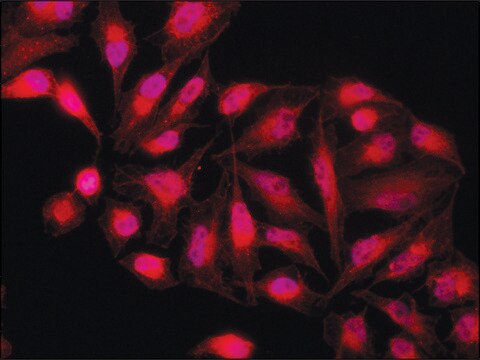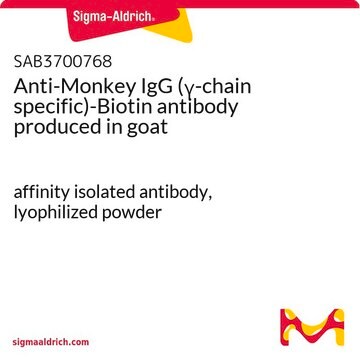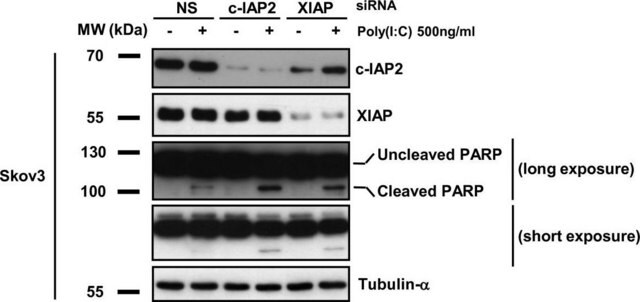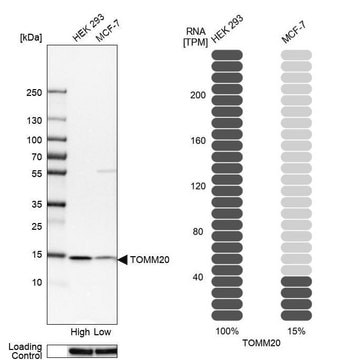SAB4200094
Anti-PKM2 (isoform M1) antibody produced in rabbit

~1.5 mg/mL, affinity isolated antibody
Synonym(s):
Anti-CTHBP, Anti-OIP3 (OPA-interacting protein 3), Anti-PK3, Anti-PKM, Anti-Pyruvate Kinase, MUSCLE (isoform M1), Anti-TCB, Anti-THBP1 (thyroid hormone-binding protein, cytosolic)
About This Item
IHC
IP
WB
immunohistochemistry: 20-30 μg/mL using formalin-fixed paraffin embedded human colon
immunoprecipitation (IP): 2-4 μg using rat brain extract (S2 fraction)
western blot: 1-2 μg/mL using mouse brain extract (S2 fraction)
Recommended Products
biological source
rabbit
Quality Level
conjugate
unconjugated
antibody form
affinity isolated antibody
antibody product type
primary antibodies
clone
polyclonal
form
buffered aqueous solution
mol wt
antigen ~60 kDa
species reactivity
human, rat, mouse
enhanced validation
recombinant expression
Learn more about Antibody Enhanced Validation
concentration
~1.5 mg/mL
technique(s)
immunocytochemistry: 5-10 μg/mL using HeLa cells
immunohistochemistry: 20-30 μg/mL using formalin-fixed paraffin embedded human colon
immunoprecipitation (IP): 2-4 μg using rat brain extract (S2 fraction)
western blot: 1-2 μg/mL using mouse brain extract (S2 fraction)
shipped in
dry ice
storage temp.
−20°C
target post-translational modification
unmodified
Gene Information
human ... PKM2(5315)
Related Categories
General description
Specificity
Application
- immunoblotting
- immunoprecipitation
- immunohistochemistry
- immunocytochemistry
Biochem/physiol Actions
Physical form
Disclaimer
Not finding the right product?
Try our Product Selector Tool.
Storage Class Code
10 - Combustible liquids
Flash Point(F)
Not applicable
Flash Point(C)
Not applicable
Choose from one of the most recent versions:
Already Own This Product?
Find documentation for the products that you have recently purchased in the Document Library.
Our team of scientists has experience in all areas of research including Life Science, Material Science, Chemical Synthesis, Chromatography, Analytical and many others.
Contact Technical Service






![Anti-phospho-TDP-43 [pSer409] antibody produced in rabbit ~1.0 mg/mL, affinity isolated antibody](/deepweb/assets/sigmaaldrich/product/images/407/478/bcd6d544-d187-42ed-8c1e-98bf709b4da7/640/bcd6d544-d187-42ed-8c1e-98bf709b4da7.jpg)
